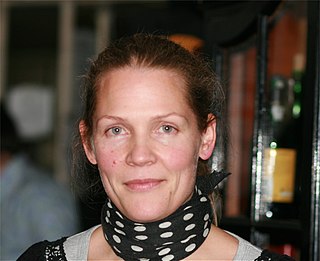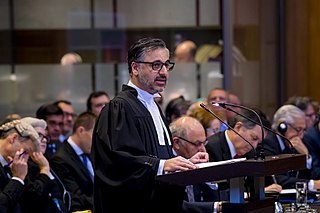A Quote by Bernard-Henri Levy
I reject the idea that there is some sort of existential "clash of civilizations." I am an interventionist, but not a militarist. War should always be a last resort.
Quote Topics
Related Quotes
I hate the tribal hatred thesis - in Yugoslavia and Rwanda and places like that they kill each other because that's just what people do there. I think it's profoundly ignorant. I was astonished when Samuel Huntington wrote his famous clash of civilizations essay in response to the Yugoslavian war. I was on the streets in Sarajevo and every other person I met came from a mixed marriage. And here is Professor Huntington from Harvard writing this is a clash of civilizations. That was absurd.
We have reaffirmed again and again that the United States is not and never will be at war with Islam. Islam teaches peace, and when it comes to America and Islam, there is no us and them, there's only us, because millions of Muslim Americans are part of the fabric of our country. So, we reject any suggestion of a clash of civilizations.
We don't have a great clash of civilizations, a clash of ideologies, a clash of alternative models, where governments thought to themselves, if we go too far, if we sort of trample unreasonably on rights, we'll give birth to a political movement which will cost us our credibility, and will possibly cost us our offices, because people will vote for the other team, the other guys.
There was this famous clash of civilization thesis from Samuel Huntington, a political theorist. And the idea was that Western civilization is at war with Islam and maybe some of the other civilizations around the world. And I don't agree with that. But I do think there is such a thing as Western civilization. I think it starts with the Greeks and the Romans. Then it goes through the Enlightenment - or the Reformation, the Enlightenment. It goes through the scientific age. And it somewhat defines some of the cultures and mores of Europe and North America and some other countries.
I voted against the war in Iraq. I voted against the first Gulf War. I think war is the last resort - the last option of a great military power like us. I think that we need to focus on building coalitions. Yes, ISIS must be destroyed. But it should be destroyed by a coalition of Muslim nations on the ground with the support of the United States and the other major powers in the air and in training the troops there.
Setting aside moral considerations, those who flirt with hate speech against Muslims should realize they are playing directly into the hands of al-Qaeda and the Islamic State. The terrorists' explicit hope has been to try to provoke a clash of civilizations - telling Muslims that the United States is at war with them and their religion.
It is my hypothesis that the fundamental source of conflict in this new [post-Cold-War] world will not be primarily ideological or primarily economic. The great divisions among humankind and the dominating source of conflict will be cultural. Nation states will remain the most powerful actors in world affairs, but the principal conflicts of global politics will occur between nations and groups of different civilizations. The clash of civilizations will dominate global politics. The fault lines between civilizations will be the battle lines of the future.


































